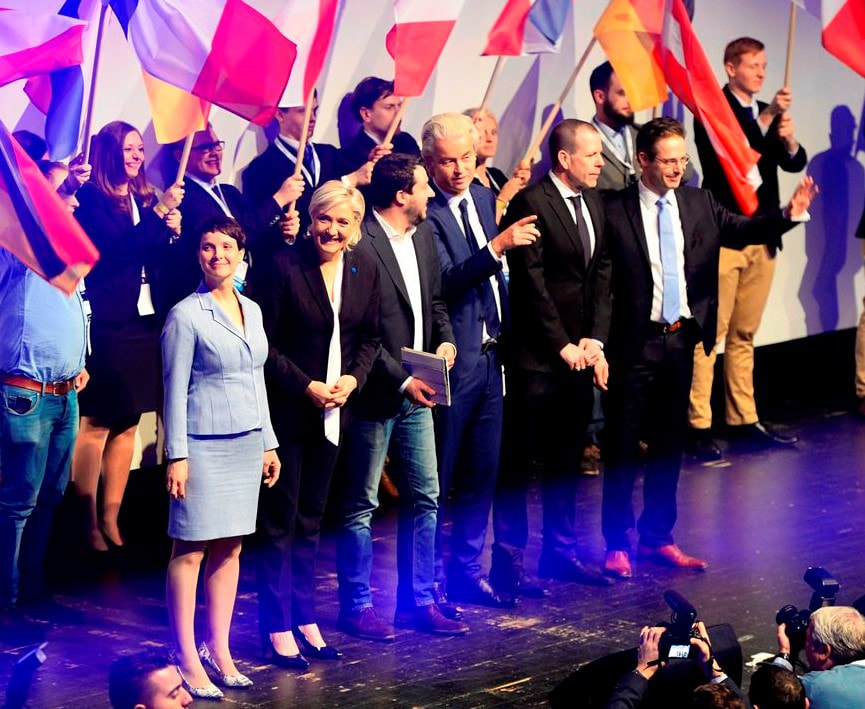|
|
|
Cross-posted by Ideology Theory Practice
Discussion and debate about the far right, its rise, origins and impact have become ubiquitous in academic research, political strategy, and media coverage in recent years. One of the issues increasingly underpinning such discussion is the relationship between the far right and the mainstream, and more specifically, the mainstreaming of the far right. This is particularly clear around elections when attention turns to the electoral performance of these parties. When they fare as well as predicted, catastrophic headlines simplify and hype what is usually a complex situation, ignoring key factors which shape electoral outcomes and inflate far-right results, such as trends in abstention and distrust towards mainstream politics. When these parties do not perform as well as predicted, the circus moves on to the next election and the hype starts afresh, often playing a role in the framing of, and potentially influencing, the process and policies, but also ignoring problems in mainstream, establishment parties and the system itself — including racism. This overwhelming focus on electoral competition tends to create a normative standard for measurement and brings misperceptions about the extent and form of mainstreaming. Tackling the issue of mainstreaming beyond elections and electoral parties and more holistically does not only allow for more comprehensive analysis that addresses diverse factors, manifestations, and implications of far-right ideas and politics, but is much-needed in order to challenge some of the harmful discourses around the topic peddled by politicians, journalists, and academics.
0 Comments
UNESCO’s Atlas of Endangered Languages recognises over 2,500 endangered languages worldwide. Languages represent not just a form of communication, but also the cultural knowledge of that language. However, in his book Language Death, David Crystal estimates that the world is in danger of losing nearly half of all accumulated knowledge at the current rate of language loss. With language intrinsically tied to culture, many communities that experience a decline in the use of their native language perceive it as a sign that their culture is dying. The result is often that older generations look for ways to maintain, transmit and revitalise use of their language through younger generations.
The internet is intrinsically connected to issues of language and cultural identity. As language is the primary means for spreading cultural information, internet resources in minority languages can empower speakers of these languages by enabling them to display their own way of life and voice their concerns and issues in their mother tongue. In this way, they may revitalise their languages, reinforce cultural symbols and strengthen cultural identities.
‘What are you?’ When posed with this question in highly racialised societies, most people respond by sharing their racial identity. Although racial identity is a personal decision, the choice is often constrained by the recognised racial categories available within the racialised society.
For example, as written into law through the 1950 Population Registration Act – linchpin legislation that helped set in motion South Africa’s Apartheid system by defining race for its population – to be Coloured was to be ‘a person who is not a white person or a native’ Black/African. To be Coloured meant you were neither/nor. We are now a quarter century into post-Apartheid South Africa and the state has undergone a massive sociopolitical transformation that operates under the ideal to be non-racist. Some changes include the repealing of Apartheid laws, including the Population Registration Act. So how has the transition from the white supremacist Apartheid state impacted Coloured racial identities in post-Apartheid South Africa? I explore how racial identities are created and recreated to adapt to state-level racial (re)formation processes in my recently published Identities article, ‘Able to identify with anything’: racial identity choices among ‘Coloureds’ as shaped by the South African racial state’.
The use of identity markers in sport has received considerable attention from scholars in a number of disciplines over a number of decades. This has been looked at in a variety of different sports and includes insightful studies published in Identities such as the works of Paul Campbell and Daniel Burdsey on football and Constancio Arnaldo on boxing.
In our Identities article, ‘Pretty fly for a white guy: The politics of race, nation and difference in professional boxing’, we look at the ways in which race and nation are (re)presented within the coverage of one particular fight. Boxing is a sport that relies heavily on binary divisions. In his book Boxing and Society, the sociologist John Sugden noted how success in the ring could ‘symbolise not only individual achievement, but also racial and national superiority’. For the promotion of many championship bouts the hype around the fight is constructed around binary oppositions. This paper looks at the bout between Joe Calzaghe (a white boxer from Wales) and Bernard Hopkins (a black boxer from the USA) as a case study to explore the representation of identities. In attempting to tease out some of the key themes to emerge in the intersection of race and nation, we tried to understand how identities are portrayed within boxing. This work also highlighted further differences around the understanding of social class and core/periphery relations within a particular sport. |
|
Explore Identities at tandfonline.com/GIDE |
|
The views and opinions expressed on The Identities Blog are solely those of the original blog post authors, and not of the journal, Taylor & Francis Group or the University of Glasgow.




